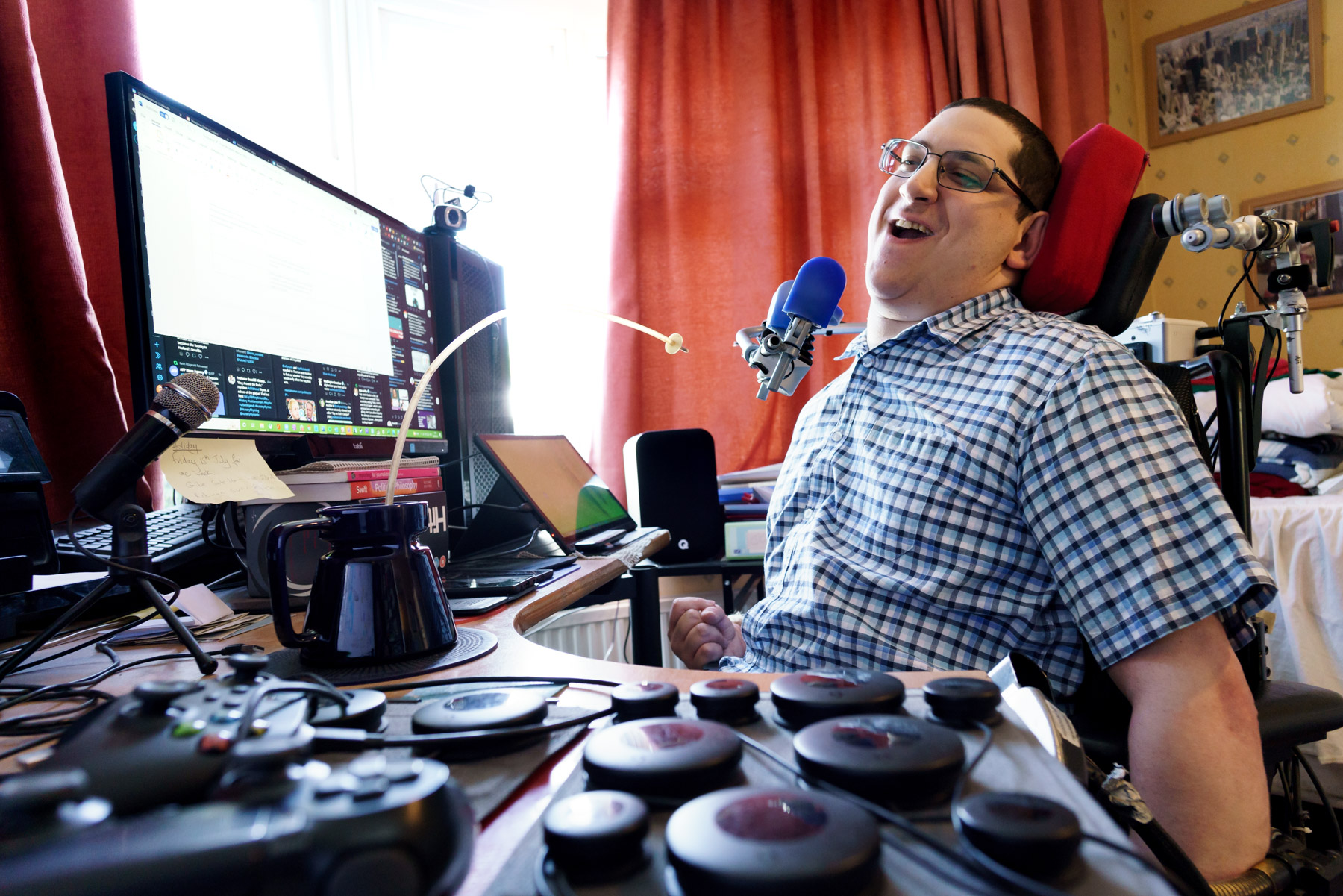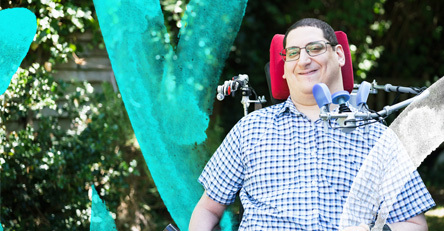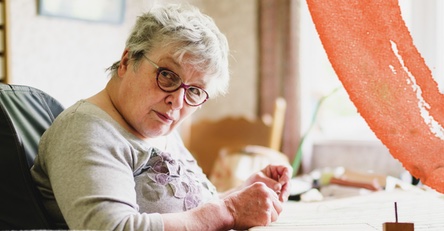
Clive Gilbert is a leading policy expert on assistive technology for disabled people, drawing in part, on his own experiences living with Cerebral Palsy. He tells us his story.
On my professional life:
I work for a think tank called Policy Connect. I’m the policy manager for assistive technology. The first part of my role is running the secretariat for the All-Party Parliamentary Group for Assistive Technology, which is a group of MPs and peers from the House of Lords who share an interest in how technology can make life better for disabled people.
Within that, there are a couple of policy areas that I oversee in particular, social care and independent living. I look at how technology can be used at home by disabled people to live more independently, by engaging with social care providers and local authorities, and private consumers of assistive technology. I have just authored a report about that called Smarter Homes for Independent Living.
My role also includes overseeing innovation policy. That’s more focused on improving research and development funding for assistive technology. I’m organising a workshop for that next week.
I’ve recently been shortlisted for the Disability Power List, which is a list of some of the most influential, disabled people in the country that’s drawn up every year by a charity called the Shaw Trust.
I also write an assistive technology newsletter, that’s published by the charity AbilityNet. That’s something I do on a freelance basis.
Part of my job involves a lot of networking. I sit on the Council for the British Assistive Technology Association, BATA. That’s an association of assistive technology suppliers, companies, charities, schools, and universities. I set up a group for them on augmentative and alternative communication, which is a subset of assistive technology, helping people who use need assistance to communicate. For example, Steven Hawking using a clever voice synthesiser and computer.
Living with Cerebral Palsy
I’ve got Cerebral Palsy which affects my whole body. I can’t walk, I have limited fine motor control. I can do some basic tasks with my hands, such as pressing buttons, but not much beyond that. I have speech impairment too.
It kind of defines my path in life and my job. So I work in assistive technology and disability and I require a lot of support from various people. I live with my parents and the house has been adapted, and carers come at certain points. And I work with a couple of personal assistants who assist me with my job. And I use a variety of technology.
On transitioning into adult care
There’s no pathway of support once you reach adulthood, so you feel that you’re on your own quite often in managing your disability, and trying to understand how that might change in the future. You notice changes in the way your body moves, and the things you’re able to do.
There’s no one to go to consult on how to of manage your disability, so that results in a lot of uncertainty. I suspect that these problems I’m experiencing could be resolved if I knew who to ask.
When I was at school, i used to receive regular physiotherapy – it was a specialist school that had a physiotherapist on site. They oversaw all the needs arising from my disability. That all stopped when I left school. There’s been really nothing beyond that.
On advice to my younger self:
Disability requires a lot of determination to get where you want to be. Things have improved in some respects. I feel personally more integrated in society, especially since I got a job.
I have more friends now than when I was younger, picked up from school, university or people that have helped me. And in my current workplace, many supportive colleagues. And that has helped address quite a few of the problems that I had when I was younger – fitting in and making friends.
But you have to take opportunities. It’s very easy to get disheartened.
What people should know about Cerebral Palsy
Cerebral Palsy doesn’t affect your intellect. I’m generally able to say things as well as anyone else, I just often need more time to express them.
And we need opportunities to socialise. People need to be able to accommodate you a bit more if you’re going to have those opportunities.
Disabled people have so much to give to the lives of other people. You’re able to offer a different perspective on life. You can learn a lot from disabled people and get a lot from their company.
On my hopes for the future:
In the coming years, I hope to go further as a public policy expert in disability and other related policy areas, and become more recognised as a leading thinker in policy. In terms of my social life, I’m still trying to develop that, and building the relationships that any adult would want to have.







